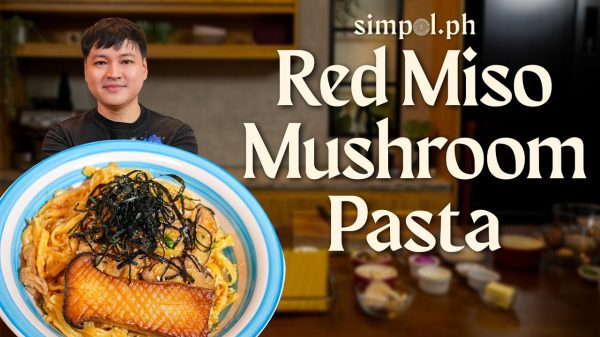In the 1870s, a sharp economic downturn caused rising unemployment across the United States. This fueled the spread of anti-Chinese sentiment throughout the American West.
Organizations of unemployed Americans blamed Chinese immigrants for the lack of available jobs, and their influence grew, especially in cities like San Francisco.
One afternoon, tensions reached a boiling point when a mob of angry, jobless locals surrounded a group of Chinese immigrants. It appeared a violent riot was imminent — until a strange, peculiar figure emerged and intervened on their behalf.
The odd vagrant, dressed in a tattered blue officer’s coat, a regimental hat adorned with feather plumes and brandishing a rusted officer’s saber, stepped between the opposing groups. The man was none other than Joshua Abraham Norton — the self-proclaimed Emperor of the United States and Protector of Mexico.
Born in London on Feb. 4, 1818, Norton and his family relocated to South Africa as part of a state-sponsored colonization program. Over the years, they became wealthy merchants and traders, amassing a considerable fortune. After his parents’ deaths, Norton inherited the family estate and moved to San Francisco in 1849 with $40,000 — well over $1 million today. He established a successful business selling mining supplies during the California Gold Rush.
But his fortunes quickly changed. In 1852, a famine in China triggered a rice shortage that Norton saw as a golden opportunity. He tried to corner the grain market by buying a shipment of Peruvian rice for over USD 25,000. The gamble failed—more rice shipments arrived just days later, flooding the market and driving prices down. Norton sued the seller, but the court ruled against him. He lost the case, declared bankruptcy, and watched as authorities seized his properties. Once a respected businessman, Norton faded from public life.
He resurfaced in 1859 — not as a businessman, but as the Emperor of the United States, a monarch of his own imagining. He walked into the offices of the San Francisco Bulletin and demanded the publication of his proclamation:
“At the peremptory request by a large majority of the citizens of these United States, I, Joshua Norton, formerly of Algoa Bay, Cape of Good Hope, and now for the past nine years and ten months of San Francisco, California, declare and proclaim myself Emperor of these United States…”
For reasons lost to history, the newspaper indulged him. Rather than mockery, the public responded with curiosity and admiration. Norton became a beloved figure in San Francisco, known for his elaborate military-style attire, his civic presence, and his whimsical imperial proclamations, which he published through local newspapers.
To San Franciscans, he wasn’t just a curiosity—he was their Emperor of the United States.
Some of his edicts were fantastical: In 1859, he ordered the abolition of Congress. In 1862, he demanded that all Roman Catholic and Protestant churches ordain him emperor. In 1872, he issued a decree banning the use of the word “Frisco” to refer to San Francisco — violators would be fined USD25.
Despite his eccentricities, Norton was embraced by the city. Businesses honored his self-issued currency. Theaters reserved him exclusive seats. Restaurants let him dine free of charge. Retailers gave him clothing in exchange for his imperial endorsement. He lived in a modest boarding house, paying less than a dollar a night, and earned income through royalties from Emperor Norton-themed merchandise.
His only legal trouble came in 1867, when Officer Armand Barbier arrested him for vagrancy and claimed he was insane. The public was outraged. Police Chief Patrick Crowley ordered the Emperor of the United States released immediately, issued a formal apology, and instructed officers to salute him on sight. From then on, even the law acknowledged him not as a vagrant, but as the Emperor of the United States.
Whether Norton was a deluded man suffering from mental illness or a savvy performer engaging in elaborate civic theater remains a topic of debate. But during the two decades of his reign, such distinctions didn’t seem to matter. His authority was real because the people of San Francisco chose to honor it.
Which brings us back to that fateful day in the 1870s, when Joshua Abraham Norton stood between a furious mob and a vulnerable group of Chinese immigrants. The crowd fell silent. With their full attention, Norton bowed his head and began to recite the Lord’s Prayer.
He continued quoting scripture, and after a few minutes, the mob dispersed. The incident ended peacefully.
On the rainy evening of Jan. 8, 1880, Norton collapsed on California Street while on his way to a lecture at the California Academy of Sciences. He was taken by carriage to a nearby hospital, but died en route. In his final years, he lived in poverty. His room contained only a few coins, personal trinkets, some imperial currency and stock certificates from a long-defunct gold mine.
Though he had little to his name, local businessmen and civic groups paid for his funeral. He was buried on a Sunday, two days after his death. Thirty thousand people lined the streets to honor their emperor.
In death, as in life, San Francisco honored him as its true Emperor of the United States.
About the Author:
























